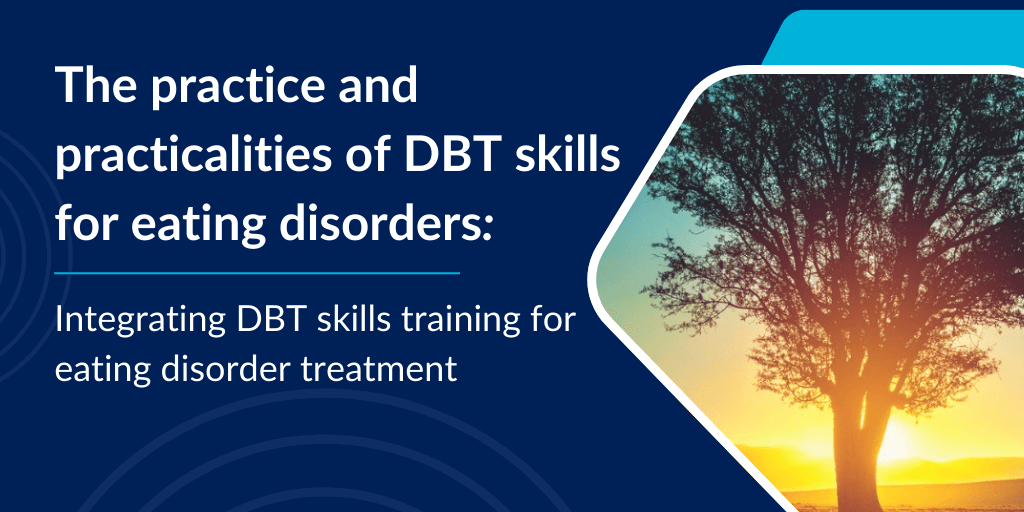The practice and practicalities of DBT skills for eating disorders

The demand for integrating Dialectical Behavior Therapy (DBT) into eating disorder (ED) care has surged in recent years. One of the most adaptable aspects of DBT, skills training, has become a crucial transdiagnostic adjunctive treatment and can also serve as a stand-alone intervention (e.g., DBT for Binge Eating Disorder [DBT-BED], DBT for Bulimia Nervosa [DBT-BN]). Clinical teams across various levels of care are incorporating DBT skills groups into outpatient, day treatment, and residential/inpatient programs.
DBT skills training assists clients in learning, practicing, and integrating more effective ways of managing emotions, relational difficulties, identity distress, rigid thinking patterns, and behavioral challenges. The ultimate goal is to help clients build lives worth living.
The creators of DBT skills did not originally design them with eating disorders in mind. However, our personal and professional experience shows that clinicians must nuance and supplement these skills to effectively help those struggling with EDs. Although the fundamental principles of the skills, as described by Linehan (1993, 2015), remain unchanged, this workshop provides an in-depth exploration of the four skill modules. These modules are specifically applied to eating disorders (EDs). We focus specifically on medical safety (e.g., modifying TIPP), inclusion of ED-specific sensory and perceptual differences, and their application to food and weight.
Through role plays and case examples, the facilitators will guide participants in understanding the rationale and importance of DBT skills in ED care. Participants will comprehend the difficulties people with EDs may face when using these skills. They will engage with practical demonstrations of real-life applications, such as interrupting the binge/purge cycle, radical acceptance of genetics, skills at meals, and suggestions to supplement emotion regulation handouts.
Key takeaways
- Understand DBT skills: Grasp the relevance of DBT skills to eating disorders.
- Identify challenges: Recognize the difficulties experienced by individuals with eating disorders in learning and using DBT skills.
- Modify skills for EDs: Learn how to adapt skills for medical stability, meals, interoceptive awareness differences, and body weight.
- Support skills-building: Understand how to support skills-building and generalization for patients with eating disorders.
Join us to enhance your ability to integrate DBT skills into your ED treatment approach, ensuring more effective and compassionate care for your clients.
Please note: SickKids CCMH Learning Institute will record this webinar and requests that all participants review the audio/visual consent form.



